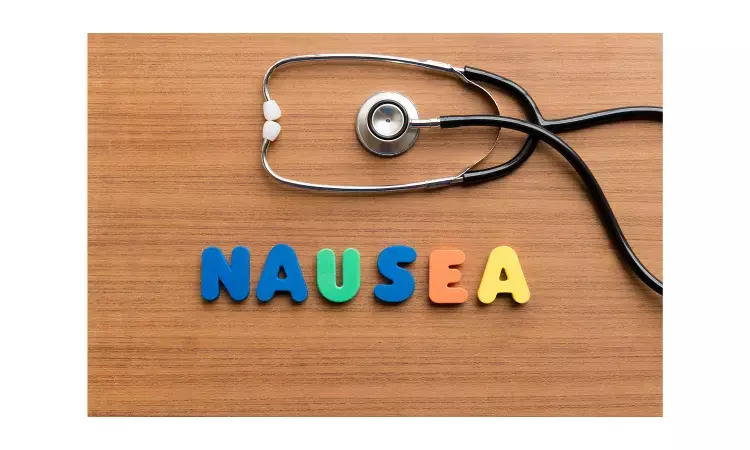- Home
- Medical news & Guidelines
- Anesthesiology
- Cardiology and CTVS
- Critical Care
- Dentistry
- Dermatology
- Diabetes and Endocrinology
- ENT
- Gastroenterology
- Medicine
- Nephrology
- Neurology
- Obstretics-Gynaecology
- Oncology
- Ophthalmology
- Orthopaedics
- Pediatrics-Neonatology
- Psychiatry
- Pulmonology
- Radiology
- Surgery
- Urology
- Laboratory Medicine
- Diet
- Nursing
- Paramedical
- Physiotherapy
- Health news
- Fact Check
- Bone Health Fact Check
- Brain Health Fact Check
- Cancer Related Fact Check
- Child Care Fact Check
- Dental and oral health fact check
- Diabetes and metabolic health fact check
- Diet and Nutrition Fact Check
- Eye and ENT Care Fact Check
- Fitness fact check
- Gut health fact check
- Heart health fact check
- Kidney health fact check
- Medical education fact check
- Men's health fact check
- Respiratory fact check
- Skin and hair care fact check
- Vaccine and Immunization fact check
- Women's health fact check
- AYUSH
- State News
- Andaman and Nicobar Islands
- Andhra Pradesh
- Arunachal Pradesh
- Assam
- Bihar
- Chandigarh
- Chattisgarh
- Dadra and Nagar Haveli
- Daman and Diu
- Delhi
- Goa
- Gujarat
- Haryana
- Himachal Pradesh
- Jammu & Kashmir
- Jharkhand
- Karnataka
- Kerala
- Ladakh
- Lakshadweep
- Madhya Pradesh
- Maharashtra
- Manipur
- Meghalaya
- Mizoram
- Nagaland
- Odisha
- Puducherry
- Punjab
- Rajasthan
- Sikkim
- Tamil Nadu
- Telangana
- Tripura
- Uttar Pradesh
- Uttrakhand
- West Bengal
- Medical Education
- Industry
Hypnotherapy effective in reducing symptoms in kids with functional nausea: Study

Chronic nausea is an increasingly acknowledged complaint in children. It is commonly encountered in association with functional gastrointestinal (GI) disorders. The potential effectiveness of gut-directed hypnotherapy (HT) is unknown for pediatric chronic nausea and its management is required.
A randomized controlled trial by Pamela D. Browne and team did a comparative study of hypnotherapy with standard medical treatment (SMT) and revealed that hypnotherapy and SMT were effective in reducing nausea symptoms in children with functional nausea (FN) and functional dyspepsia (FD). In children with functional nausea, hypnotherapy was more effective than SMT during and after the first 6 months of treatment.
The findings of the study is published in Clinical Gasteroenterology and Hepatology journal.
The objective of the study was to compare the effectiveness of HT with standard medical treatment (SMT).
The study included 100 children (8–18 years) with chronic nausea and fulfilling functional nausea (FN) or functional dyspepsia (FD) criteria were randomly allocated (1:1) to HT or SMT, with a 3-month intervention period. Outcomes were assessed at baseline, half-way and after treatment, and 6- and 12-month follow-up. Children scored nausea symptoms on a 7-day-diary. Primary outcome was treatment success, defined as ≥50% nausea reduction, at 12-month follow-up. Secondary outcome included adequate relief of nausea.
The results of the study were
• After treatment and at 6-month follow-up, there was a trend toward higher treatment success in the HT group compared to the SMT group (45% vs. 26%, p = .052 and 57% vs. 40%, p =.099).
• At 12 months, treatment success was similar in both groups (60% (HT) and 55% (SMT); p = .667).
• In the FN group, significant higher success rates were found for HT, but no differences were found in patients with FD.
• Adequate relief was significantly higher in the HT-group than in the SMT-group at 6-month follow-up (children: 81% vs. 55%, p =.014 and parents: 79% vs. 53%, p =.016), but not at 12-month follow-up.
Browne and team concluded that "HT and SMT were effective in reducing nausea symptoms in children with FN and FD. In children with FN, HT was more effective than SMT during and after the first 6 months of treatment. Therefore, HT and SMT, applied separately or in combination, should be offered to children with functional nausea as a treatment option"
Reference: https://doi.org/10.1016/j.cgh.2021.10.029
Medical Dialogues consists of a team of passionate medical/scientific writers, led by doctors and healthcare researchers. Our team efforts to bring you updated and timely news about the important happenings of the medical and healthcare sector. Our editorial team can be reached at editorial@medicaldialogues.in.
Dr Kamal Kant Kohli-MBBS, DTCD- a chest specialist with more than 30 years of practice and a flair for writing clinical articles, Dr Kamal Kant Kohli joined Medical Dialogues as a Chief Editor of Medical News. Besides writing articles, as an editor, he proofreads and verifies all the medical content published on Medical Dialogues including those coming from journals, studies,medical conferences,guidelines etc. Email: drkohli@medicaldialogues.in. Contact no. 011-43720751


